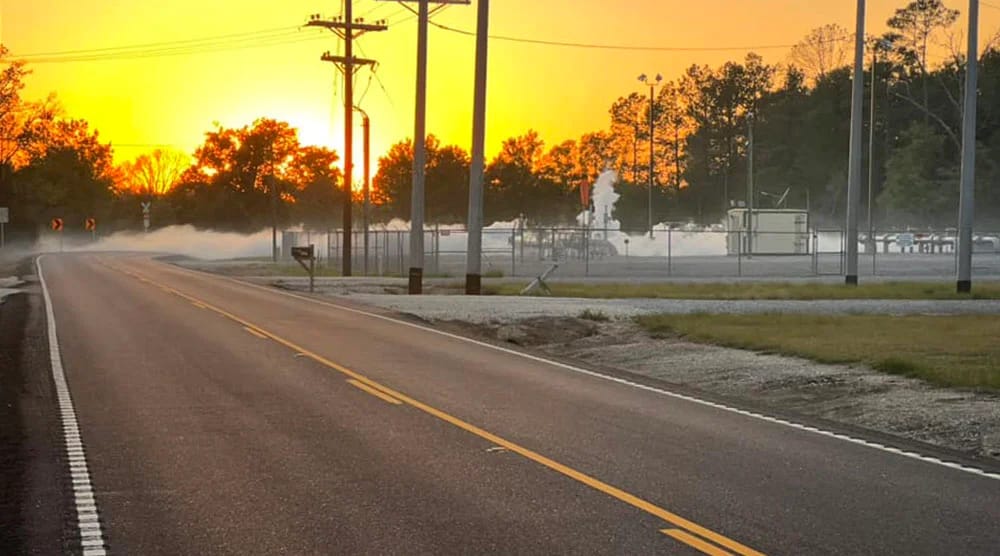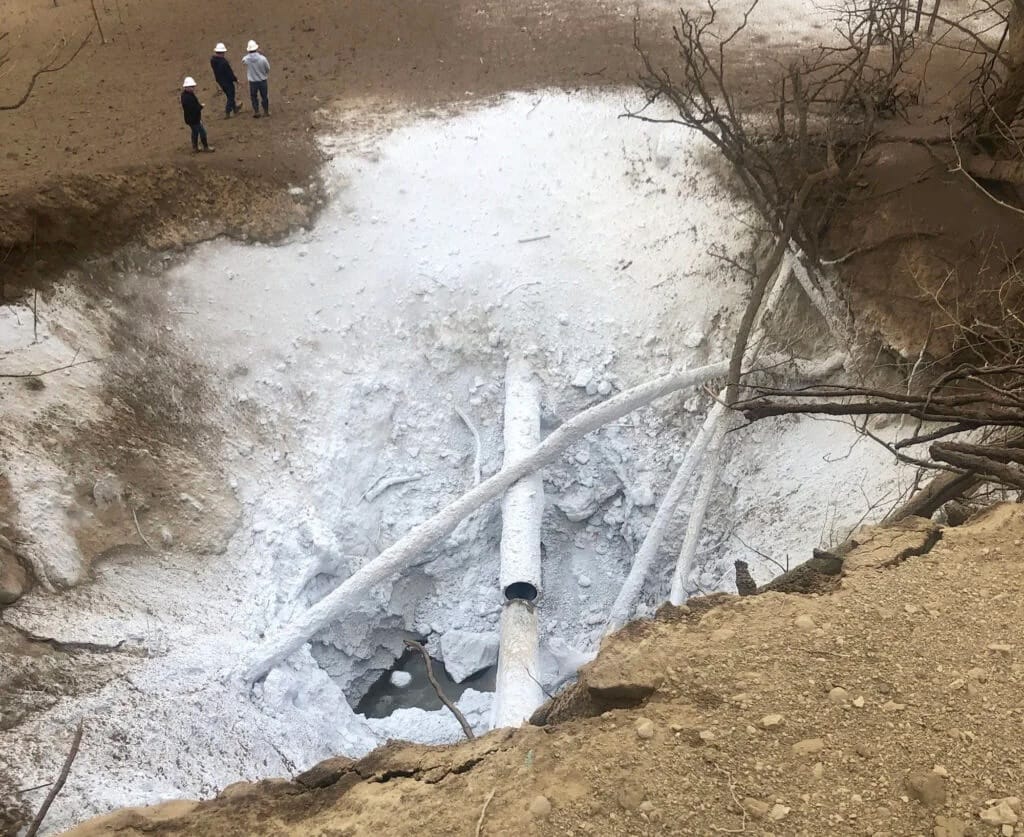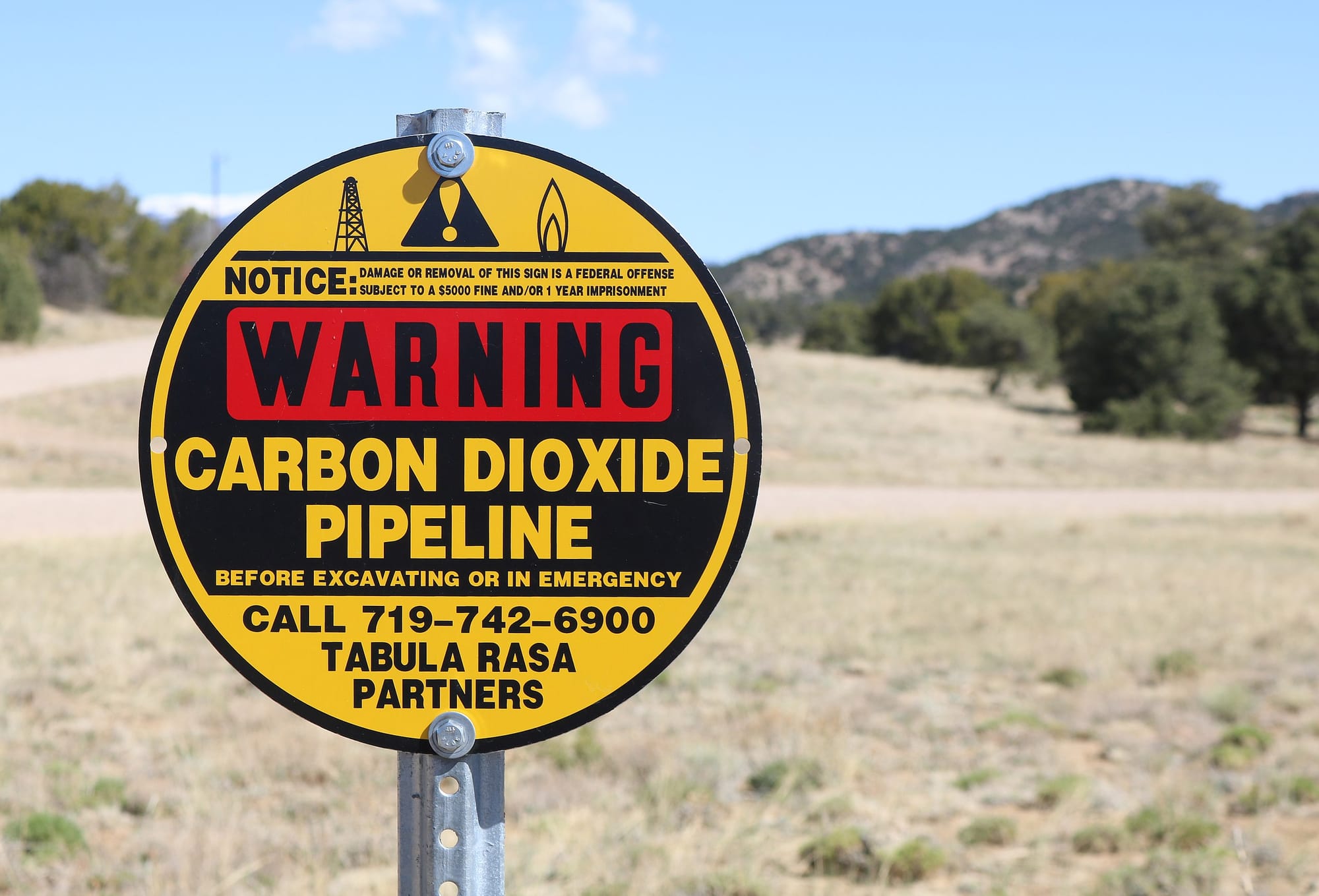CO2 pipeline company draws $2.4M fine for menacing federal inspectors
Workers were manufacturing pipeline to replace a ruptured section of carbon dioxide line that sent 45 people to the hospital in Mississippi

Published by the Louisiana Illuminator, WWNO, Mississippi Today, Inside Climate News
Federal inspectors sent to examine a carbon dioxide pipeline being built to replace one that failed in Mississippi were taunted, pushed and blocked from doing their jobs, according to a notice from the Pipeline and Hazardous Materials Safety Administration.
The agency is proposing a $2.4 million fine against pipeline company Denbury and its contractor, Republic Testing Laboratories. The fine is an unusually large amount for an agency that typically proposes fines in the tens of thousands of dollars. Denbury agreed to pay a $2.8 million fine for its pipeline rupture in Mississippi — less than the originally proposed $3.9 million.
The proposed fine for Denbury’s pipeline rupture was the agency’s second highest penalty ever. The proposed fine for allegedly interfering with inspection of the replacement pipeline is the eighth largest since 2002, PHMSA data shows.
The findings and proposed fine for the 2023 inspection were issued in January, just days before President Joe Biden left office. PHMSA, when contacted, said it couldn’t comment on an ongoing investigation.
ExxonMobil, which owns Denbury, said it has received the PHMSA notice and “is considering appropriate next steps.” Republic Testing didn’t respond to a request for comment. The inspections took place at Republic’s LaPorte, Texas, facility.
The work being inspected included welds on a section of pipe to replace Denbury’s 24-inch pipeline that ruptured near Satartia, Miss., in 2020, sending 45 people to the hospital.
Bill Caram, executive director of the nonprofit Pipeline Safety Trust, said if the allegations are true, they are appalling.
“I have never come across such blatant disregard for safety oversight as what was detailed in that report,” he said.” Considering they were replacing the pipeline that failed — that sent almost 50 people to the hospital — you would expect there to be some humility there.”
The Satartia rupture has been used repeatedly by opponents of carbon capture as an argument against the technology, which they claim is unproven and dangerous. PHMSA says the nation will need 50,000 miles of CO2 pipelines — 10 times the current amount — to accommodate the anticipated growth in carbon capture and sequestration (CCS), driven by federal tax credits.
CCS projects are being eyed around the country, including off the coasts of Louisiana and Texas. The technology is seen as a key strategy to help the United States reduce greenhouse gas emissions. The pipelines move CO2 from where it’s captured to another site for storage, or in the case of the Satartia line, to be injected into an oil well, making the oil easier to pump.
But if the line leaks or is ruptured, the CO2 can suffocate people and animals. Denbury also owns a pipeline that leaked in Calcasieu Parish, Louisiana, in April 2024, forcing a shelter-in-place order by the local government.
The inspections are especially critical because welds are a common point of pipeline failure, according to the Pipeline Safety Trust. And welds on carbon dioxide pipelines need to withstand the rapid cooling that can occur when the CO2 is decompressed, which can further weaken welds that aren’t done correctly.

Allegations of intimidation detailed
PHMSA’s report details six incidents from Aug. 30 to Dec. 7, 2023 that it says violated federal law at Republic’s Texas facility.
On Sept. 6, Denbury and Republic employees physically blocked an inspector from interviewing a welder and pushed that inspector out of the way when the inspector questioned the welder, according to PHMSA.
The next day, inspectors were told tests to determine the strength of the welds wouldn’t be done that day because workers were going home. The inspectors left. The next morning, Sept. 8, they discovered the testing had been conducted the night before, after they left.
“Denbury and Republic intentionally conducted the destructive testing without PHMSA inspectors present,” the report reads.

On Sept. 11, an orange screen was set up around a welder, preventing inspectors from watching the welds and a data logger, which captures welding parameters in real time, according to PHMSA.
Then, after the PHMSA inspector raised concerns about a test weld that Republic reluctantly agreed was done in error, one Republic employee began mocking a PHMSA inspector, challenging that person’s welding qualifications, according to PHMSA.
“The PHMSA inspectors perceived the behavior as unprofessional and intimidating with a clear intention to hinder and impede PHMSA’s inspection,” according to the report.
When a Republic employee continued taunting the inspector, including making a sexist comment, the inspector left “due to safety reasons.” PHMSA later contacted Denbury and asked it to remove the Republic employee. But the employee remained on the job and continued to be involved in PHMSA’s inspection, the agency said.
The PHMSA report also says Denbury refused to provide data to inspectors and prevented then from photographing readings on equipment.
Jim Walsh, policy director of environmental advocacy group, Food and Water Watch, said he fears the incident is a sign of things to come.
“This entire industry, the oil and gas industry, is looking to build out these pipelines as quickly as possible with as little oversight as they can,” Walsh said.
Floodlight is a nonprofit newsroom that investigates the powerful interests stalling climate action.


